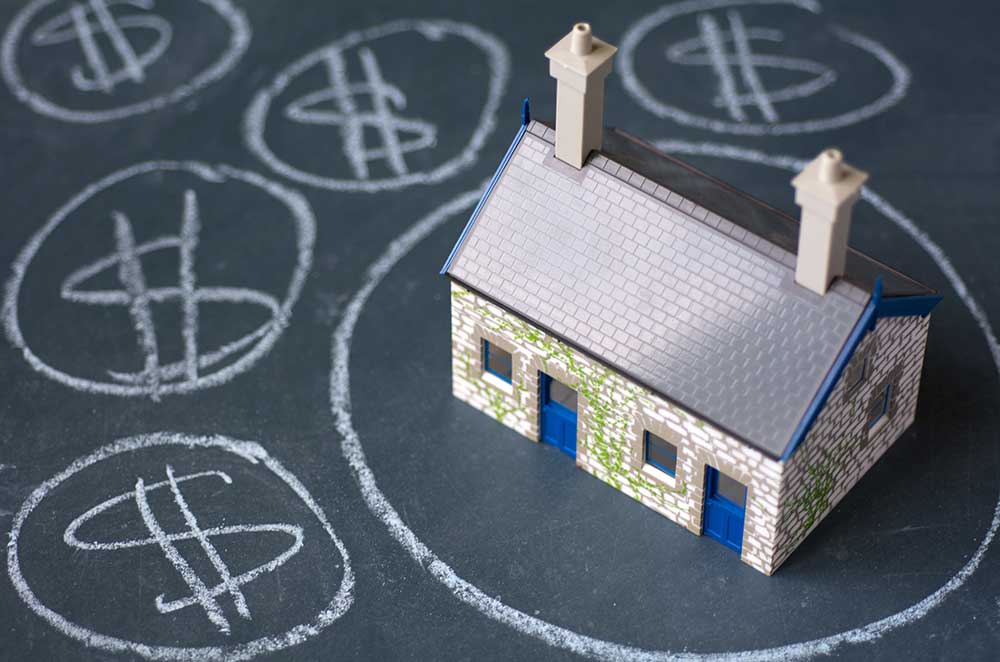When a good real estate agent comes to your home to provide an assessment of its value, they’re doing much more than pulling a number out of the air. There’s a science to the process, a science that takes in a number of different factors both in the home itself and in the surrounding suburbs.
Today we’re going to demystify that a bit for you. This will help you get a bit of an idea of what your home is worth, which you can use to your advantage when choosing a real estate agent to sell your home. If they’re way off the mark in their appraisal, you’re going to know they’re probably not the right person for you.
Here are some of the factors affecting the value of your home:
Location
The location of your home is one of the most crucial influences on its value. There’s a lot that goes into determining how much the position of your home affects its value. Are you in a tourist area? Demand might be high due to the potential for AirBnb and short-term rental income. Similarly, if you’re in the catchment area for a good state school, demand for homes in your area will be higher because of families looking to move there.
Other factors are proximity to shops, restaurants and cafes; ease of access to main arterials; the amount of green space nearby; hospitals, clinics, medical centres and other health points;
Other Sales in the Area
These are called comparable sales, i.e. properties that have recently sold near to you that are comparable to your home. These homes will be a similar size and on a comparably sized block of land. The number of bedrooms and bathrooms will be the same or close to the same, and they will be close in age too.
A real estate agent will do an in-depth study of recent sales in your area before coming to an appraisal figure for your home. Note that they will only take into account actual sales prices, not listing prices. Sales prices are a more accurate reflection of what people would pay for a property in an area.
The Prevailing Market
The market at the time of sale is going to affect the price of your home a lot. If it’s a seller’s market, then supply can’t keep up with demand and prices are going to climb higher. A buyer’s market means there are more houses on the market than there are buyers, so prices go down again.
There are a number of factors affecting the real estate market, both on a local and a national scale. The state of the economy is particularly relevant. If the economy is on a good streak and people have excess capital, they’re going to be thinking of investing into more property, upgrading their home or getting onto the real estate ladder. If the economy is in bad shape, people revert to survival mode and big investments into property become scarcer.
Land and Home Size
The bigger the home and block of land in comparison to surrounding houses, the more money its likely to change houses for. It’s not just space though, its usable space within the home that’s important. How many bedrooms are there? How many bathrooms? Undercover parking? What’s the storage situation like? The more useful spaces, the more valuable a home.
The Condition and Age of the Property
A newer property is likely to attract a higher price, because buyers will assume they won’t be paying for any renovations or repairs in the near future. It’s going to be assumed an older home will be slightly more out of style, and probably also requiring of some sort.
Condition is not always reliant on age, however. You may have a 20-year old home that has been carefully looked after over time, and a five-year-old home that has been trashed by its residents. The condition of the structure will play a big part in the price being offered for it in these cases.
Planned Development in the Area
Development of infrastructure projects within a close proximity of your home in the near future will have a positive affect on its price. Imagine a hospital is being built down the road, plus all new access to the motorway, plus a cycle path to the city. All of these things will play into a buyer’s decisions when they are thinking about how much they’d like to spend on a property.
Interest Rates
Interest rates directly affect affordability. If the Reserve Bank increases interest rates, all other lenders will do so too. This means mortgage payments go up, which has downward pressure on housing prices. Similarly, low interest rates improve affordability, so demand goes up and house prices go up.
If you’d like an experts opinion on how much your home is worth, get in touch with Henry Wong today. He’d be more than happy to answer all of your real estate questions for you!




